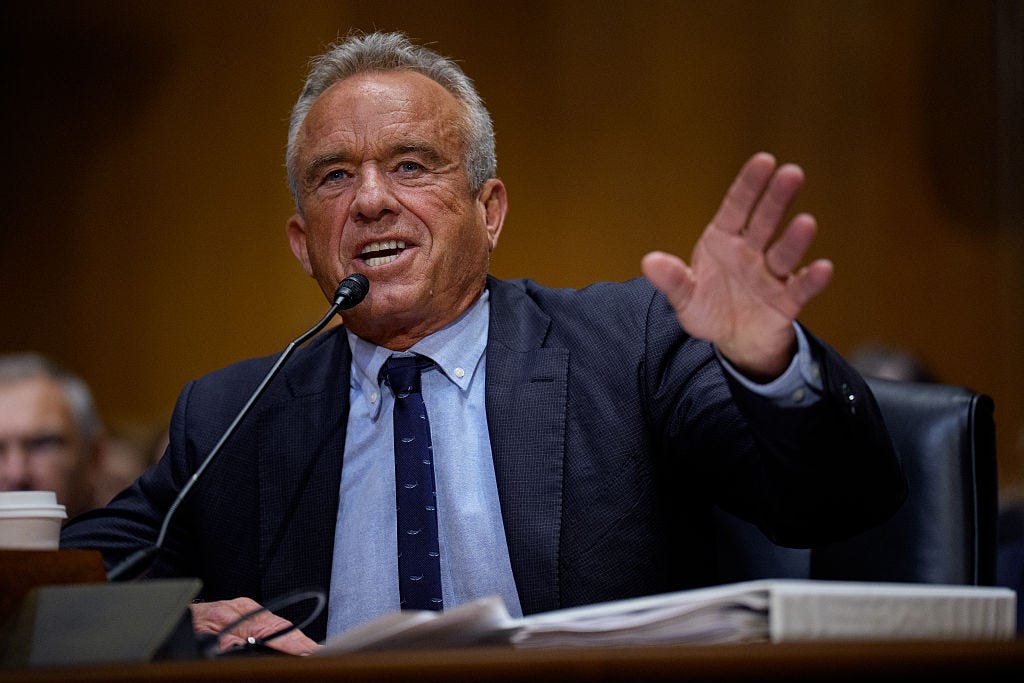RFK Jr., Dr. Oz, and Elizabeth Warren agree on at least one big thing
Trump's top health officials are challenging industry groups' stranglehold on how we pay doctors — a move that could help fix our broken primary-care system.
Believe it or not, some doctors are underpaid. Relatively speaking, at least.
One of the most underrated problems in American medicine is that becoming a primary-care physician makes little to no financial sense. Clinicians who go into fields like family medicine earn 38 percent less than specialists on average, despite having similar training requirements. Faced with that dismal math, medical students and residents tend to pursue more lucrative options like becoming surgeons or dermatologists.
As a result, the United States currently faces a shortfall of about 13,000 primary-care physicians, which is expected to balloon to more than 87,000 by 2037, according to federal estimates. Wait times for a primary-care appointment now average several weeks, and those practices are less likely to accept new patients compared with specialists’ offices.
This shortage isn’t just a matter of national inconvenience; it’s also a danger to public health. Thanks in part to our exceptionally high obesity rates, the U.S. is drowning in chronic illnesses like diabetes and heart disease that account for eight of the top 10 causes of death. Primary care is the frontline against these ailments; without it, complications spiral unchecked into life-threatening situations.
Having enough specialists is important, too — nobody wants to wait months to see an orthopedist about their back pain. But at the population level, primary care simply saves more lives, thanks to its focus on prevention, early detection, and chronic-disease management. Adding just one primary-care doctor for every 10,000 people cuts mortality by five percent and increases the average life span by nearly two months.
Thankfully, the Trump administration now looks intent on attacking a root cause of our primary-care shortage.





